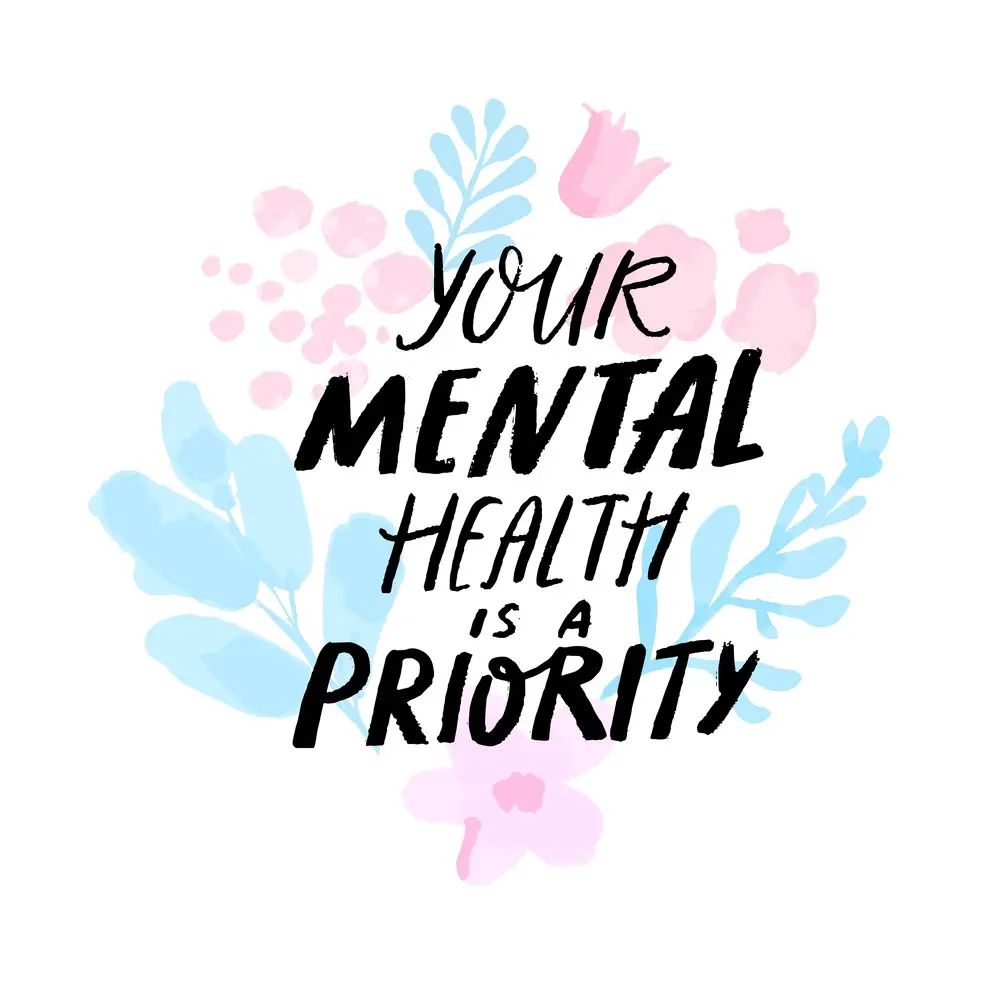As a BetterHelp affiliate, we receive compensation from BetterHelp if you purchase products or services through the links provided
Communication is the foundation of any strong relationship. Whether you’ve been with your spouse for years or only recently tied the knot, you may occasionally find it challenging to express your thoughts and feelings without confrontation. By learning to communicate effectively with your spouse, it is possible to create a happier, healthier, and more harmonious marriage.
When misunderstandings occur, it is essential to recognize that healthy communication practices can significantly resolve conflicts without arguing. Developing these skills requires patience, mutual understanding, and empathy. With shared dedication, you and your spouse can enhance communication, strengthening your bond and deepening your emotional connection.
It’s essential to recognize the role of emotions in communication and be proactive about improving your skills. Addressing conflicts without fighting may seem daunting, but by reviving your relationship and being open to new strategies, you and your spouse can enjoy a more fulfilling partnership characterized by open, affirming dialogue.
Key Takeaways
- Effective communication can lead to a happier and more harmonious marriage.
- Patience, understanding, and empathy are crucial for resolving conflicts without arguing.
- Proactively improving your communication skills can help deepen your emotional connection with your spouse.
 Understanding Your Emotions
Understanding Your Emotions
Identifying Your Triggers
Knowing your emotional triggers is essential to communicate effectively with your spouse without arguing. Think about situations that typically cause you to feel defensive or upset. Consider making a list of these triggers, which can help you recognize them during conversations. Understanding your triggers, you can better manage your reactions and avoid conflicts.
Managing Defensiveness
Defensiveness can strain communication between you and your spouse. To minimize defensiveness, try the following methods:
- Practice empathy: Put yourself in your spouse’s shoes and genuinely try to see things from their perspective.
- Stay open-minded: Be willing to hear your partner’s thoughts and opinions, even if you disagree.
- Use “I” statements: Instead of using accusatory language, express your feelings and thoughts with “I” statements.
- Keep the focus on yourself: Rather than pointing out your partner’s shortcomings, focus on how you can improve or handle the situation more effectively.
Maintaining a Calm Mindset
A calm mindset is crucial for healthy communication with your spouse. Here are a few strategies to help you maintain that mentality:
- Practice deep breathing: When you feel stressed or overwhelmed, take a moment to close your eyes and breathe deeply. This can help you regain your composure and prevent emotional outbursts.
- Develop healthy coping mechanisms: Engage in activities that help you release stress, like exercise or journaling. Regular self-care helps maintain a peaceful state of mind.
- Set boundaries: Establish and communicate your boundaries, as they can help prevent unnecessary conflicts.
- Take a break if needed: If emotions run high during an interaction, requesting a pause in the conversation is okay to regain calm and collect your thoughts.
By recognizing your triggers, managing defensiveness, and maintaining a calm mindset, you can better understand your emotions and communicate effectively with your spouse, reducing the chances of fights.
Building Your Communication Skills
The Power of Active Listening
You should develop active listening skills to communicate with your spouse without fighting. Active listening is more than just hearing what your partner says; it involves truly understanding their feelings, concerns, and thoughts. Here are a few tips for improving your active listening skills:
- Be present: Focus on your partner when they’re speaking, putting aside distractions.
- Show empathy: Acknowledge their feelings through your facial expressions and body language.
- Ask open-ended questions: Encourage an open flow of conversation by asking questions that require more than a yes or no answer.
How to Start Meaningful Conversations
Establishing a strong foundation of meaningful conversations with your partner is essential for resolving disagreements and avoiding fights. Consider these steps to start engaging and meaningful conversations:
- Choose the right time and place: Address sensitive issues when you both have sufficient time and are in a comfortable environment.
- Be curious: Show genuine interest in your partner’s thoughts and experiences.
- Share your feelings: Open up about your emotions, helping your partner understand your perspective.
 Communicating Effectively Even in Disagreements
Communicating Effectively Even in Disagreements
Disagreements are normal in any relationship, but it’s important to maintain respectful communication, even during conflicts. Implement these strategies to communicate effectively during disagreements:
- Stay on topic: Address one issue at a time and avoid bringing up unrelated past grievances.
- Use “I” statements: Speak from your perspective and express your feelings without accusing your spouse.
- Take breaks: If the conversation gets heated, take a break to cool down before continuing.
By incorporating these tactics into your communication style, you’ll be better equipped to communicate with your spouse without fighting. Fostering a healthy and open communication environment takes time and effort, so be patient with yourself and your partner as you practice and improve.
Resolving Conflicts Without Fighting
Timing is Everything
Choosing the right time to discuss sensitive topics with your spouse prevents arguments. Make sure both of you are relaxed and not preoccupied with other stressors. It’s best to avoid discussing issues when either of you is tired, hungry, or emotionally drained. By picking the right moment, you can approach the conversation calmly and collectedly, laying the foundation for productive communication.
The Art of Compromise
At the heart of healthy conflict resolution is the ability to compromise. Remember that finding a solution is more important than winning the argument. Be open to your spouse’s perspective and try to understand their concerns. Be willing to adjust your stance and meet in the middle — a win-win scenario. Here are some tips for successful compromise:
- Listen attentively: Give your spouse your full attention and avoid interrupting.
- Express empathy: Validate their feelings and acknowledge their point of view.
- Find common ground: Identify areas where both can agree and build upon them.
- Offer solutions: Brainstorm potential compromises and work together to choose the best option.
Knowing When to Take a Break
Sometimes, despite your best efforts, conversations can become heated. It’s important to recognize when you need to take a break to avoid further escalating the conflict. If you notice your emotions getting the best of you or your spouse, suggest a short “time-out” to cool down. Here’s what to do during that break:
- Breathe deeply: Use breathing exercises to calm your mind and regain composure.
- Identify your emotions: Reflect on why you’re feeling the way you do and what triggered it.
- Reframe your thoughts: Modify your perspective to be more understanding and compassionate towards your spouse.
- Choose your words wisely: Plan how you will re-enter the conversation with a positive and constructive attitude.
By implementing these strategies, you can effectively communicate with your spouse and resolve conflicts without fighting. This will lead to a stronger and more fulfilling relationship built on mutual trust and respect.
 Reviving Your Relationship
Reviving Your Relationship
Addressing Unhappiness in Marriage
Sometimes, your marriage may be filled with problems instead of happiness and love, like an unhappy spouse or constant disagreements. It’s crucial to address this unhappiness rather than let it fester. Start by talking openly about your feelings, and remember to listen empathetically to your spouse. Here are a few steps to help:
- Open the conversation: Begin by expressing your feelings without blaming your spouse. Allow them to share their feelings as well.
- Be genuine: Focus on your emotions and avoid exaggerating or making false claims.
- Acknowledge your responsibility: Realize that you contribute to the relationship and take ownership of your actions.
Standing Against Name Calling
Name-calling can lead to a toxic environment and prevent effective communication. To stop this behavior, follow these tips:
- Recognize the impact: Understand that name-calling can severely damage your spouse’s self-esteem and your relationship.
- Use “I” statements: Share your feelings without attacking, and say, “I feel hurt when you call me names” rather than “You always call me names.”
- Agree on a zero-tolerance policy: Make a pact with your spouse to end name-calling for good and hold each other accountable.
How to Stop Fighting and Start Communicating
To overcome fights and engage in meaningful communication, consider these strategies:
- Stay calm: When tensions rise, take a deep breath and avoid getting defensive or aggressive.
- Listen actively: Pay attention to your spouse’s words and body language, and don’t interrupt or start planning your response before they’re done talking.
- Be empathetic: Put yourself in your spouse’s shoes and try to understand their perspective.
By following these guidelines, you can work together to strengthen your connection, improve communication, and create a healthier, happier marriage. Remember, it takes time and effort, so be patient and supportive – it’s worth it.
 When is Therapy More than Just an Option? ?
When is Therapy More than Just an Option? ?
Sometimes, you hit a point where it becomes evident that outside intervention is crucial to the survival of your relationship. These are the red flags you shouldn’t ignore:
- Constant Fighting: When even the smallest disagreements escalate into full-blown arguments.
- Avoidance: You’re no longer talking, or you’re talking but not about anything meaningful.
- Resentment: You or your spouse holds grudges and uses past events as ammunition in current arguments.
- Lack of Intimacy: Physical or emotional distance creeps in, and neither of you tries to bridge the gap.
- Trust Issues: Suspicion or jealousy has become a third wheel in your relationship.
 Move beyond pain and confusion together.
Move beyond pain and confusion together.
Goals & Signs of Progress in Couples Therapy ?
Before entering therapy, it’s vital to set goals. You’re there to work on:
- Communication Skills: Learn how to articulate feelings and thoughts without turning confrontational.
- Conflict Resolution: Adopt healthy methods for resolving disagreements.
- Building Intimacy: Rekindle emotional and physical closeness.
- Trust Building: Work on rebuilding faith in each other.
Signs that you’re making headway:
- Easier and more open conversations ?️
- A decrease in the frequency and intensity of arguments ?
- Increased physical and emotional intimacy ?
- Feeling secure and trusting each other more ?
Going Solo or as a Duo? ?
Should you go to therapy together or separately? Both have their merits.
- Together: This offers a safe space for mediated conversations and immediate feedback.
- Separately: Individual sessions can help tackle personal issues affecting the relationship.
A hybrid approach—combining couple and individual therapy—is often the most effective ?.
Supporting Each Other for Maximal Benefits ?
Therapy is a team sport. Here’s how you can support each other:
- Be Open: Encourage openness and discourage the blame game.
- Do Homework: Therapists often give ‘homework.’ Work on it together.
- Celebrate Small Wins: Progress may be slow, but each step forward is a victory. Celebrate it ?.
- Check-In Regularly: Make time to discuss your feelings about the therapy process.
Remember, therapy isn’t a magic wand ?. It requires dedication from both parties. By recognizing the signs that it’s time for professional help, setting shared goals, and supporting each other throughout the process, you’ll maximize the benefits of therapy and pave the way for a more harmonious relationship ?.
Exploring Alternative Paths to Healthy Communication ?️
Therapy is a valuable tool, but it’s not the only one in the toolbox. Sometimes you want to take additional or alternative routes to healing communication in your relationship. Here are some approaches to consider:
The Power of Active Listening ?
- This goes beyond just hearing; it’s about understanding. Listen to understand, not to respond.
Daily Check-Ins ?️
- Set aside a few minutes each day to talk without distractions. It fosters regular, open communication.
“I” Statements Over “You” Accusations ?
- Frame your concerns and feelings around “I feel…” rather than blaming or accusing the other person.
Read Books or Take Online Courses ?
- There’s a wealth of self-help books and online courses tailored to improve relationship communication. You both can decide on a book or a course and go through it together.

The 5 Love Languages ?
- Understanding each other’s love language can significantly improve how you communicate love and appreciation.
Time-Outs Aren’t Just for Kids ?
- When tensions rise, taking a short break before resuming a discussion can prevent heated arguments.
Utilize Technology, but Wisely ?
- Apps and online quizzes designed for couples can offer insights into each other’s viewpoints and how to communicate better. Remember that technology is a tool, not a replacement for deep, meaningful conversations.
Friends and Family Support ?
- Sometimes, a trusted friend or family member can provide a fresh perspective on your communication issues. However, choose this confidant wisely to ensure they offer unbiased advice.
Workshops and Retreats ?️
- Immersive experiences can provide concentrated periods to focus on each other and your communication skills.
Quick Tips for a Seamless Journey:
- Be Consistent: Make these approaches a habit, not a one-time effort.
- Be Patient: Rome wasn’t built in a day; likewise, your communication barriers won’t disappear overnight.
- Be Kind: Kindness goes a long way in any relationship, especially when working through issues.
Remember, the aim is to build a relationship where you can express yourselves openly, honestly, and without fear of judgment or resentment ?. Every relationship is unique, so mix and match these methods to find what works best for you and your spouse ?.
Frequently Asked Questions

What is a healthy way to discuss disagreements?
When discussing disagreements, it’s essential to maintain open-mindedness and mutual respect. Listen actively to your spouse’s perspective and express your thoughts clearly. Keep the focus on the issue at hand, avoiding personal attacks or bringing up past unrelated arguments. Use “I” statements to express your feelings, and avoid absolutes like “never” or “always.” Remember, it’s about finding a common ground and resolving the conflict, not winning the argument.
How can we avoid arguments when discussing sensitive topics?
Consider setting guidelines before the conversation begins to avoid arguments while discussing sensitive topics. Establish a calm environment and choose an appropriate time when both of you are emotionally ready. Speak honestly but compassionately about your feelings and thoughts. Use active listening skills and validate each other’s emotions. Take breaks to cool down, regroup, manage emotions if necessary, and be open to compromise.
What are effective strategies to improve communication with a partner?
Some effective strategies to improve communication with your spouse include:
- Practicing empathy
- Building trust
- Keeping an open mind
- Verbalizing your appreciation
- Giving each other undivided attention
- Asking open-ended questions
- Addressing conflicts calmly and respectfully
- Reflecting on and evaluating communication habits
Integrating these strategies into your conversations will promote understanding and connection in your relationship.
What can help ensure a calm conversation with my spouse?
Ensuring a calm conversation involves setting the right tone at the outset. Choose a relaxed, comfortable setting, and approach the conversation with curiosity and understanding. Both partners should commit to speaking softly, using non-threatening body language, and avoiding interruptive behaviors. It’s also vital to take deep breaths, let go of preconceived ideas, and be prepared to be flexible and open-hearted.
How can anger management techniques help in communication?
Anger management techniques can help you keep emotions in check during conversations with your spouse, preventing angry outbursts that may cause harm to your relationship. Techniques include:
- Deep breathing
- Counting to ten before responding
- Acknowledging and labeling emotions
- Identifying triggers
- Practicing mindfulness and meditation
- Seeking professional help if needed
Integrating these techniques allows for better control over emotions and enhances overall communication in your relationship.
What are some methods to re-establish communication in a strained relationship?
To re-establish communication in a strained relationship, start by setting realistic expectations and acknowledging past communication issues. Commit to making time for open and honest conversations and be prepared to acknowledge and apologize for past missteps. Practice active listening and empathy, and avoid blame. Consider seeking professional help, such as couples therapy, to further enhance and support your communication journey.
Finding Light in the Darkness: My Journey with BetterHelp ?
Life has a way of hurling curveballs, and let me tell you, I’ve had my share. From surviving 9/11 while working on the 101st floor ? to losing over a thousand co-workers in that tragedy, I’ve faced life-altering moments that have shaped me. Transitioning to remote work ?, caring for my kids ??? while my ex worked full-time, and navigating the nuances of shared custody post-separation: it’s been a rollercoaster ?.
However, a steep drop came in the past year when my ex unilaterally severed my connection with my children, leaving me to face the empty rooms in my 3-bedroom apartment ?. BetterHelp (Regain is their Couples Site) has been my lifeline in these grim times ?, providing me the support and strategies to cope with this personal nightmare. As an affiliate and current user, I can’t recommend their services enough ❤️.
Who Am I? Meet Jacob Maslow ?
I’m Jacob Maslow, a battle-hardened veteran of life’s ups and downs ?️. I’m no stranger to therapy, currently using Lexapro to manage my mental health ? and recently joining the BetterHelp family ????. My ex has exhibited rampant narcissistic behavior ?, sabotaging me and the community leaders she had affairs with. As her looks fade and the years roll by, her narcissism only intensifies, manifesting in her refusal to honor court orders or uphold agreements about our children’s custody ⚖️. This has led to an ongoing legal battle, a relentless emotional toll, and an empty home ?️.
To maintain sanity, I go on long walks every day ?♂️. It clears my mind and helps me focus on my passions: writing about mental health and narcissism ? to help others grapple with similar issues. I also run a legal advice site for those who, like me, fight for their rights against a spouse who weaponizes kids instead of co-parenting ?⚖️.
Key Takeaways from My Story:
- Therapy is Essential: Whether it’s BetterHelp or another platform, don’t underestimate the power of professional advice ?.
- Self-Care is Crucial: From medication to long walks, find what makes you tick and stick with it ?.
- Share to Heal: By writing and advising others, I’ve found a constructive outlet for my struggles ?. You can, too.
Through it all, I remain optimistic ?. After all, if I’ve learned anything from my past, I can weather the storm ?️. No matter what mental health challenges you’re facing, remember: it’s a battle, but it’s one you can win ?.

- Stress Management: What is the Relationship Between Stress and Addiction? - June 28, 2024
- Exploring Techniques to Maintain a Healthy Lifestyle without Drugs - May 28, 2024
- How Acupuncture Helps Treat Chronic Fatigue Syndrome - May 28, 2024
This site contains affiliate links to products. We will receive a commission for purchases made through these links.


 Understanding Your Emotions
Understanding Your Emotions Communicating Effectively Even in Disagreements
Communicating Effectively Even in Disagreements Reviving Your Relationship
Reviving Your Relationship When is Therapy More than Just an Option? ?
When is Therapy More than Just an Option? ?


